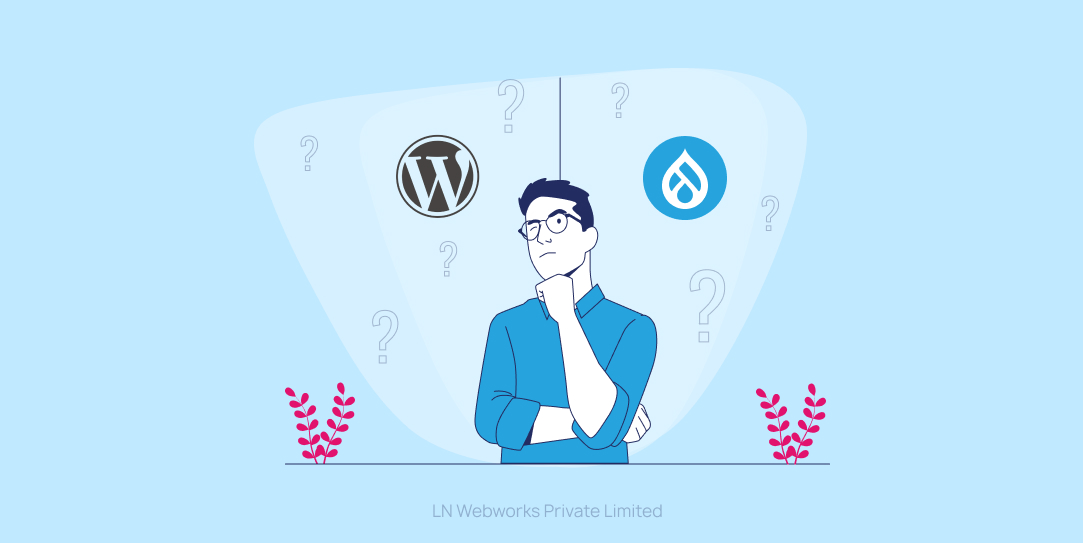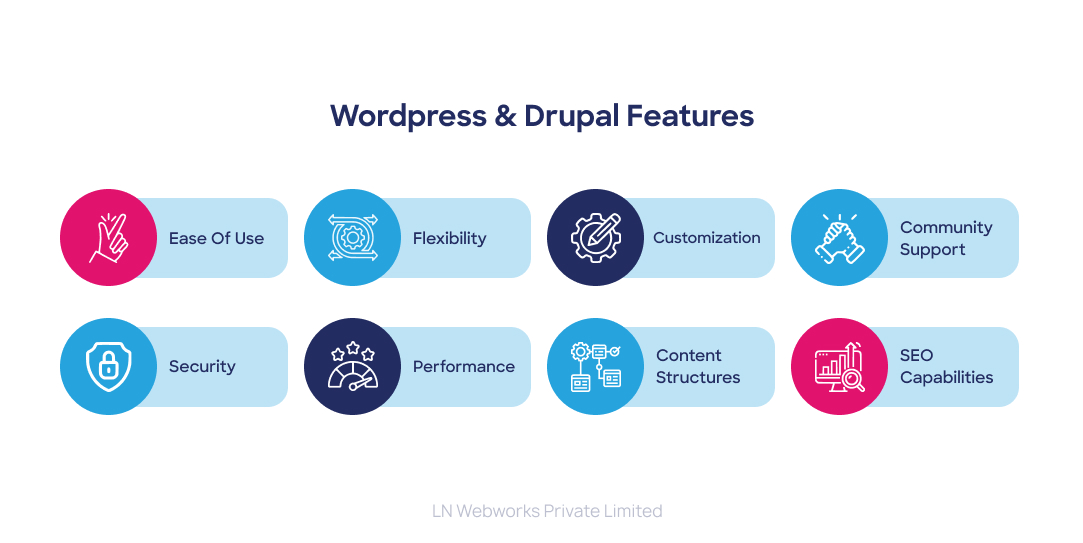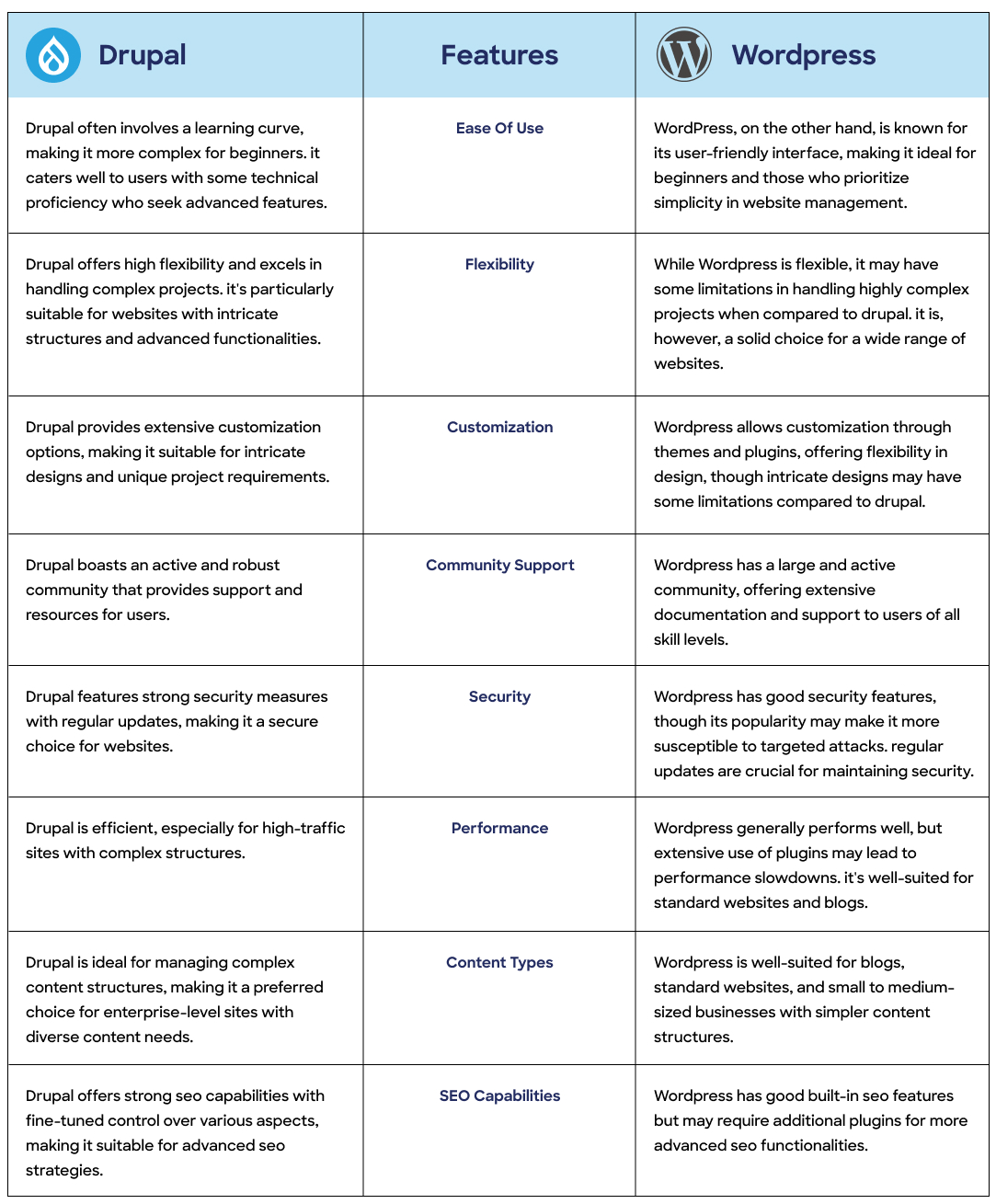WordPress or Drupal: Which CMS is the Best For You?

Selecting the right CMS platform for your upcoming website is of utmost importance. If you are venturing into website creation for the first time, chances are you’ll opt for a Content Management System (CMS) to efficiently manage and design your site.
Which CMS platform suits your website needs best?
Two major players dominate, collectively holding over 60% of the market share – Drupal and WordPress! Both boast large communities and dedicated fan bases and together, they power some of the most extensive websites globally. However, the challenge lies in understanding how these two tools compare.
Choosing between Drupal and WordPress can pose a considerable dilemma. To help you navigate this decision-making process, we’ve compiled a list of questions that pit Drupal against WordPress. Let’s get down to it!
Quick Snippet of WordPress and Drupal

As indicated by a report from Grand View Research, the global open-source services market is projected to experience a substantial compound annual growth rate of 16.9% from 2023 to 2030. In this, both Drupal and WordPress stand out as noteworthy examples of community-driven open-source software. More so, their popularity is anticipated to continue its upward slope in the coming time.
What You Need To Know About Drupal?
Originating in the early 2000s, Drupal has undergone significant advancements, reaching its pinnacle with the release of Drupal 10 in 2022. This latest iteration introduces several key improvements, including a more user-friendly interface, enhanced keyboard accessibility, integration of Drupal 10 CKEditor 5, the introduction of the Olivero theme, support for Twig 2, and notable enhancements to the layout builder.
These upgrades position Drupal as a preferred choice, particularly for high-traffic websites that demand advanced features and functionalities.
What You Need To Know About WordPress?
WordPress, a leading Content Management System (CMS), allows users to create websites with ease using its template system and plugin framework. As an open-source CMS, it currently holds a substantial 59.8% share of the market. Excitingly, WordPress is set to introduce the Jetpack AI Assistant, a revolutionary feature designed to seamlessly generate and edit text, showcasing the platform’s dedication to innovation. Users can enjoy 20 free requests for this groundbreaking tool before opting for a nominal monthly fee.
So, the question is, which one is the best for you?
WordPress vs Drupal: A Detailed Comparison

Which One Should You Opt For?
The decision between Drupal and WordPress can be challenging, given each platform’s unique advantages. To make an informed choice, consider three essential questions:
1. What Is Your Business Type?
For small blogs or eCommerce websites, WordPress’s user-friendly interface is ideal. If your business requires complex and customizable features, Drupal’s robust architecture is a better fit.
2. What Are Your Business Goals?
If scalability and growth are priorities, Drupal’s ability to handle large-scale projects and its extensive module library offer advantages. For simplicity and quick setup, WordPress’s straightforward installation process is appealing.
3. Which CMS Solves Your Immediate Business Needs?
Evaluate your current website scope to choose a CMS that efficiently addresses present needs without unnecessary complexity. This pragmatic approach ensures your selection aligns with your business goals and remains resource-efficient.
Let’s Wrap It Up!
Deciding between Drupal and WordPress boils down to your preferences. If you want an easy-to-use platform, go for WordPress. For more complex projects, Drupal is the way to go. Consider your business goals and immediate needs to make the right choice. Whether you pick Drupal for its power or WordPress for its simplicity, both platforms offer diverse options for your website’s success in the digital world.
Don’t forget that if the choice you make is Drupal, then LN Webworks is your trusted Drupal development company. We bring you solutions tailored by Drupal experts to meet your every need. Reach out to us now to know more!
